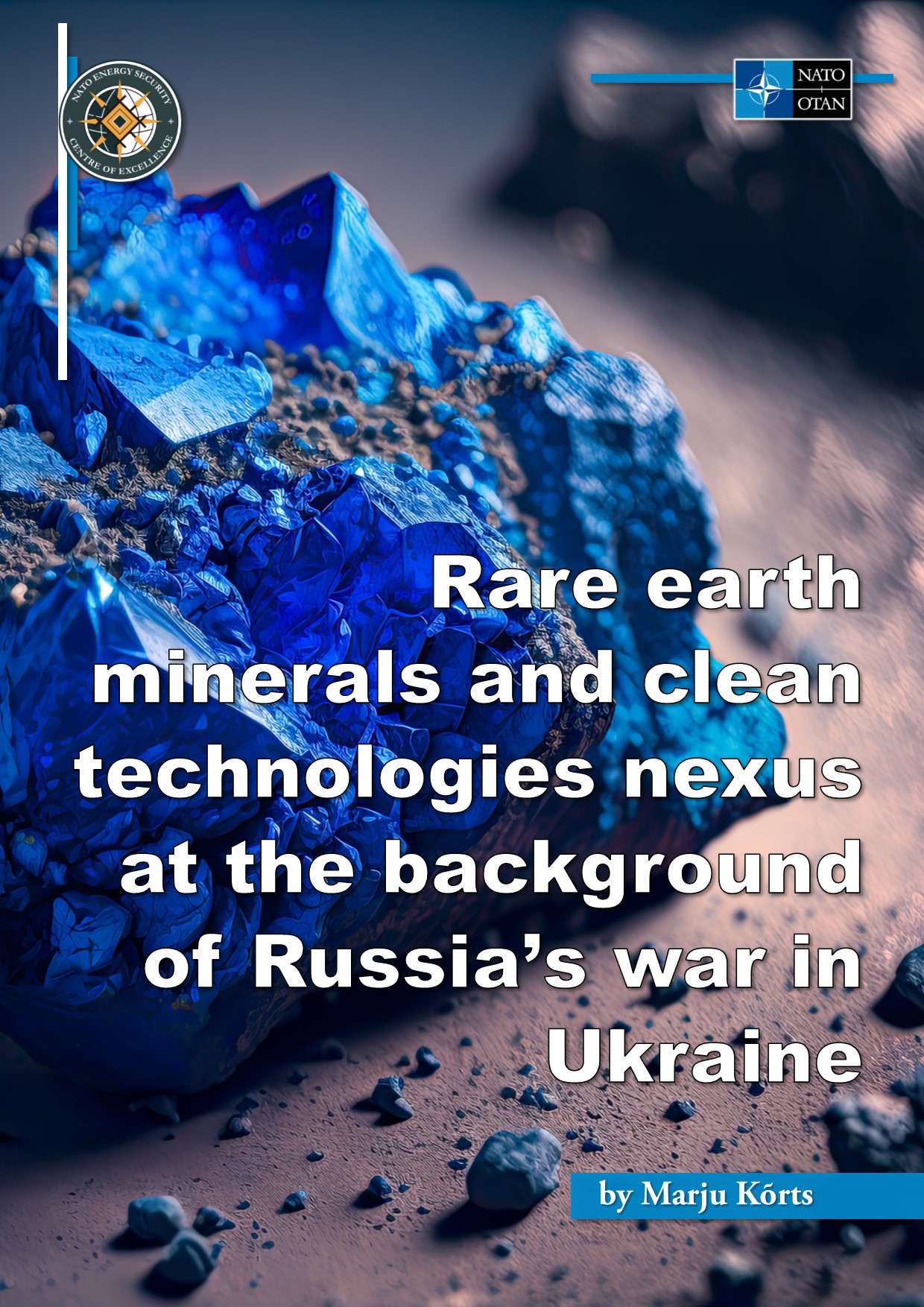Rare Earth Minerals: Fueling A New Cold War?

Table of Contents
The Geopolitical Landscape of Rare Earth Mineral Production
The global distribution of rare earth mineral reserves is highly uneven. China currently dominates the landscape, controlling a significant portion of global production and refining capacity. This concentration of power presents substantial geopolitical risks. China's dominance allows it significant economic leverage, potentially impacting global supply chains and creating vulnerabilities for nations heavily reliant on its rare earth exports. The implications are far-reaching, affecting not only the availability of consumer electronics but also crucial sectors like defense and renewable energy.
- Countries with significant rare earth mineral reserves: While China holds the lion's share, other countries possess substantial reserves, including the USA, Australia, Brazil, Russia, and several African nations. However, the extraction and processing of these minerals often lag behind China's capabilities.
- Environmental impact of rare earth mining and processing: The extraction and processing of rare earth minerals are notoriously environmentally damaging, leading to concerns about water pollution, soil degradation, and air contamination. Sustainable and responsible mining practices are crucial for mitigating these negative consequences.
- Challenges in ethical and sustainable sourcing: Ensuring ethical and sustainable sourcing of rare earth minerals is a major challenge. Many mines operate with subpar labor practices and inadequate environmental safeguards. Transparency and traceability throughout the supply chain are vital to address these ethical concerns.
Technological Dependence and the Rare Earth Mineral Conundrum
Our increasingly technological world is deeply intertwined with rare earth minerals. These elements are indispensable components in numerous high-tech applications:
- Electric Vehicles (EVs): Rare earth magnets are crucial for the electric motors powering EVs, making them a cornerstone of the transition to greener transportation.
- Renewable Energy Technologies: Wind turbines and hybrid vehicles heavily rely on rare earth magnets for efficient operation. The increasing global demand for renewable energy intensifies the demand for these minerals.
- Defense Systems: High-performance magnets in guided missiles, radar systems, and other defense technologies rely heavily on rare earth minerals.
This technological dependence on a limited number of producers creates significant vulnerabilities. Disruptions to the supply chain, whether due to geopolitical instability or environmental concerns, could have far-reaching consequences for global economies and national security.
- Technological advancements aimed at reducing reliance: Research and development are underway to explore alternative materials and technologies that can reduce or eliminate the need for specific rare earth elements in certain applications.
- The push for diversification of supply chains: Many countries are actively working to diversify their rare earth mineral supply chains, investing in domestic mining and processing capabilities, and exploring alternative sourcing options.
Strategies for Mitigating Rare Earth Mineral Risks
Addressing the challenges posed by rare earth mineral scarcity requires a multifaceted approach:
- Diversifying supply chains: This involves exploring and developing new rare earth mineral deposits in various countries, fostering international collaborations, and promoting responsible mining practices.
- Investing in recycling and reuse technologies: Recycling rare earth minerals from end-of-life products can significantly reduce reliance on primary mining. Advancements in recycling technologies are crucial to achieve this goal.
- Developing substitutes for rare earth elements: Research into alternative materials that can perform similar functions without rare earth elements is crucial for reducing dependence on these resources.
- Strengthening international cooperation: International agreements and collaborations are essential for ensuring fair and stable markets, promoting responsible resource management, and preventing conflicts arising from competition over rare earth minerals.
Government policies play a critical role in promoting these strategies. Incentives for domestic mining, investment in research and development, and the implementation of robust environmental regulations are all essential.
Securing the Future of Rare Earth Minerals
The scarcity of rare earth minerals presents significant geopolitical risks, with the potential for conflict and instability arising from competition over these crucial resources. The current concentration of production in a few countries creates vulnerabilities for global supply chains and technological development. However, proactive strategies—such as diversifying supply chains, investing in recycling and reuse technologies, developing substitutes, and strengthening international cooperation—can significantly mitigate these risks. Securing a sustainable future for rare earth minerals requires a concerted global effort to ensure responsible resource management and prevent a potential “rare earth minerals” cold war. Learn more about this crucial issue and advocate for responsible resource management and international cooperation by visiting [insert link to relevant resource here].

Featured Posts
-
 High School Confidential Week 26 A Look At 2024 25
May 17, 2025
High School Confidential Week 26 A Look At 2024 25
May 17, 2025 -
 Ultraviolette Tesseract 50 000
May 17, 2025
Ultraviolette Tesseract 50 000
May 17, 2025 -
 Floridas Response To School Shootings Lockdown Effectiveness Across Generations
May 17, 2025
Floridas Response To School Shootings Lockdown Effectiveness Across Generations
May 17, 2025 -
 Watch Celtics Vs Magic Nba Playoffs Game 1 Live Stream Tv Schedule And Details
May 17, 2025
Watch Celtics Vs Magic Nba Playoffs Game 1 Live Stream Tv Schedule And Details
May 17, 2025 -
 Stock Market Winners Rockwell Automation Angi And Others
May 17, 2025
Stock Market Winners Rockwell Automation Angi And Others
May 17, 2025
